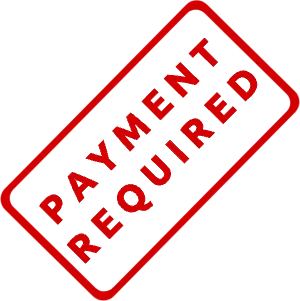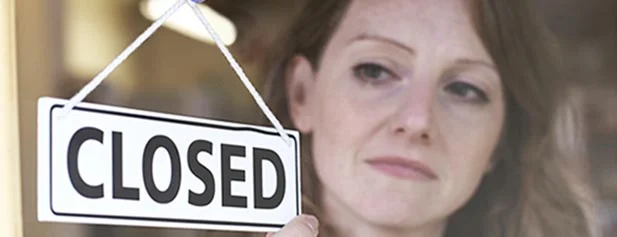How to Find the Coronavirus Assistance You Can Get from Your State

BySara Korn
UpdatedJul 7, 2025
- Many states offer assistance in addition to federal coronavirus relief.
- Assistance with food, medical needs, rent and utilities may be available.
- Go to 211.org for call 211 on your mobile phone for more information.
Table of Contents
There’s a lot of coverage about federal government coronavirus assistance out there right now, but did you know that state and local governments also have important resources to help consumers struggling due to the pandemic? Here are examples of local coronavirus benefits that are available from state and local governments.
State COVID-19 websites
Some states have websites that gather all the state’s resources in one place so it’s easy to find. Others have collected information on their main state or department of health home pages.
Take a look at the interactive map to click on your state’s coronavirus information and resource page.
Search or call 211
Just like 911 helps with life-threatening emergencies, 211 helps with essential human needs such as housing, food, clothing, healthcare, jobs, childcare, suicide prevention, and resources for the elderly, children, veterans, people with disabilities, and those who don’t speak English well.
Go to 211.org to access resources online, or call 211 from your phone and a referral specialist will guide you to local resources appropriate for your circumstances.
Eviction protection
Some counties, cities, and states like California have issued orders preventing eviction during the crisis. The specifics of each order are different, so it’s important to research the current laws in your area.
For example, some exemptions only apply if you suffered a loss of income due to COVID-19, some also cover those who are under quarantine, and others are even broader. Know your rights, because some landlords may try to evict despite government moratoriums on eviction. Keep in mind that the eviction limitations will expire, and you may need to pay the full amount later on or possibly face eviction at that time. Here are some additional resources:
It’s also a good idea to check your lease for language that may protect you from eviction in extenuating circumstances, such as a pandemic.
Food assistance
The Supplemental Nutrition Assistance Program (SNAP) is available in 47 states, and other states have similar programs that provide food benefits to those in need. New York’s SNAP website even tells you how long it takes to apply.
Government benefits may take some time to apply for and receive, so in the meantime look for assistance from your local food banks, schools, religious centers, and other nonprofit organizations.
Unemployment benefits
Some states have increased unemployment benefits or may be waiving waiting periods to collect benefits. To find employment programs and services available in your state, use the US Department of Labor’s online map. You can also search for “[your state] unemployment assistance.”
Utilities assistance
If you’re falling behind on utility payments, the good news is that many utility providers have temporarily changed their policies and are not shutting off services due to non-payment. However, it’s still a good idea to proactively contact your utility providers if you’re experiencing financial hardship and ask them to maintain your service and waive late fees.
In addition, contact your internet service provider to see if they have a program for households in need, especially if you have a child who requires internet access for distance learning.
Health insurance/medical leave
If you can no longer count on employment benefits, it’s important to understand what other healthcare options you have. Most states have health insurance programs for families that can’t afford private insurance. Use the CDC website to help you locate your state’s department of health.
Cash assistance
Some states and local governments are issuing their own coronavirus stimulus checks to local residents. Right now it’s only happened in a couple of places, but more may follow if the crisis continues, especially as states receive stimulus funds from the federal government. You can find examples here:
Communities coming together
There are many state and local resources available to help those who need assistance due to the devastation from the coronavirus, and most are working overtime to meet the extraordinary needs brought on by the pandemic. They may not all be able to help you, but keep looking until you find the ones that can help. Have patience, stay strong, and look for ways that you too can help your community and neighbors.
Learn More:
Coronavirus Stimulus Package: What it Means For You (Freedom Debt Relief)
What Happens if You Can’t Pay Rent This Month, or Next? (Freedom Debt Relief)
Unemployed Due to Covid-19? Here’s How That Affects Medical Benefits (Freedom Debt Relief)
A guide to helping and getting help during the coronavirus crisis (CNN)
A look into the world of debt relief seekers
We looked at a sample of data from Freedom Debt Relief of people seeking the best debt relief company for them during June 2025. This data highlights the wide range of individuals turning to debt relief.
Credit card balances by age group for those seeking debt relief
How do credit card balances vary across different age groups? In June 2025, people seeking debt relief showed the following trends in their open credit card tradelines and average credit card balances:
Ages 18-25: Average balance of $9,117 with a monthly payment of $276
Ages 26-35: Average balance of $12,438 with a monthly payment of $380
Ages 36-50: Average balance of $15,436 with a monthly payment of $431
Ages 51-65: Average balance of $16,159 with a monthly payment of $535
Ages 65+: Average balance of $16,546 with a monthly payment of $500
These figures show that credit card debt can affect anyone, regardless of age. Managing credit card debt can be challenging, whether you're just starting out or nearing retirement.
Collection accounts balances – average debt by selected states.
Collection debt is one example of consumers struggling to pay their bills. According to 2023, data from the Urban Institute, 26% of people had a debt in collection.
In June 2025, 30% of debt relief seekers had a collection balance. The average amount of open collection account debt was $3,203.
Here is a quick look at the top five states by average collection debt balance.
| State | % with collection balance | Avg. collection balance |
|---|---|---|
| District of Columbia | 23 | $4,899 |
| Montana | 24 | $4,481 |
| Kansas | 32 | $4,468 |
| Nevada | 32 | $4,328 |
| Idaho | 27 | $4,305 |
The statistics are based on all debt relief seekers with a collection account balance over $0.
If you’re facing similar challenges, remember you’re not alone. Seeking help is a good first step to managing your debt.
Regain Financial Freedom
Seeking debt relief can be the first step toward financial freedom. Are you struggling with debt? Explore options for debt relief to regain control of your finances. It doesn't matter how old you are or what your FICO score or credit utilization is. Take the first step towards a brighter financial future today.
Show source
Author Information

Written by
Sara Korn
Sara Korn is a freelance writer who enjoys guiding people to helpful solutions and new and better ways of reaching their goals. She loves stories both on screen and on the page, and is passionate about learning, growing, and teaching.


